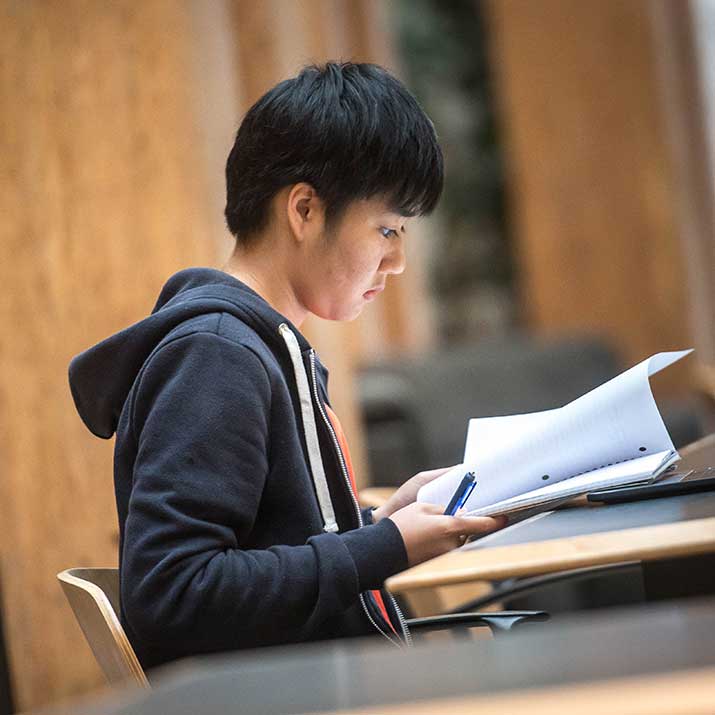Study the science of the human language and explore questions that examine various academic fields including the structural properties of language, the similarities and differences of languages around the world, and how the brain processes them.
BA in Linguistics
The BA Linguistics program is a highly interdisciplinary program that combines research methods from the humanities, as well as the social, natural, and mathematical sciences. Students will learn basic language structures and discover how languages around the world can be acquired, used, and eventually change over time.
Program Options
Program Overview
As a Linguistics student, you will have the opportunity to explore topics and gain research experience in core theoretical areas related to language structure and their intersection with a variety of applied areas.
The lower-level courses in our program are intended to be diverse and flexible. We recommend starting with our introductory linguistics courses: LING 100, 101, 209, and/or 222, along with STAT 203. These courses cover an introduction to language and linguistics to more clinical topics in speech, language, and hearing sciences. Please note that LING 100 and 101 are not credited towards a major, honours, or minor in linguistics.
To complete a Linguistics program, our students must take LING 200 and 201: Linguistic Theory and Analysis I and II. These courses will provide you with a strong theoretical foundation and analytical practice to prepare you for upper-level courses. In your third and fourth years, you will be able to look at more specialized topics to prepare for your capstone course and potential graduate studies.
Please note that while it is possible to combine a Major in Linguistics with a Minor in Speech Sciences, or vice versa, such a combination is subject to the general double counting restrictions, making it somewhat difficult to achieve. If you are interested in pursuing such an option, please get in touch with the department advisors to work through your plan. Because of the issue of double-counting, it is not possible to combine an Honours or Major in Linguistics with an Honours or Major in Speech Sciences.
Program Outcomes
Our programs instill a passion for learning about linguistics and language that students carry with them from their degree program to life beyond their university studies. Each student will have the opportunity to develop skills that facilitate being an engaged citizen who meets individual responsibilities, demonstrates ethical behaviour, and respectfully participates in communities. This goal is supported by consistent efforts across all courses in Linguistics to relate content to life in the larger world. Students will be able to: identify and work with sources of reliable information about linguistics and languages; articulate and evaluate how linguistics connects to the world at large across a range of current social, political, and educational issues; recognize the importance of utilizing their linguistic knowledge and education to improve the well-being of others; collaborate effectively on a project with colleagues from a range of diverse linguistic and cultural backgrounds.



